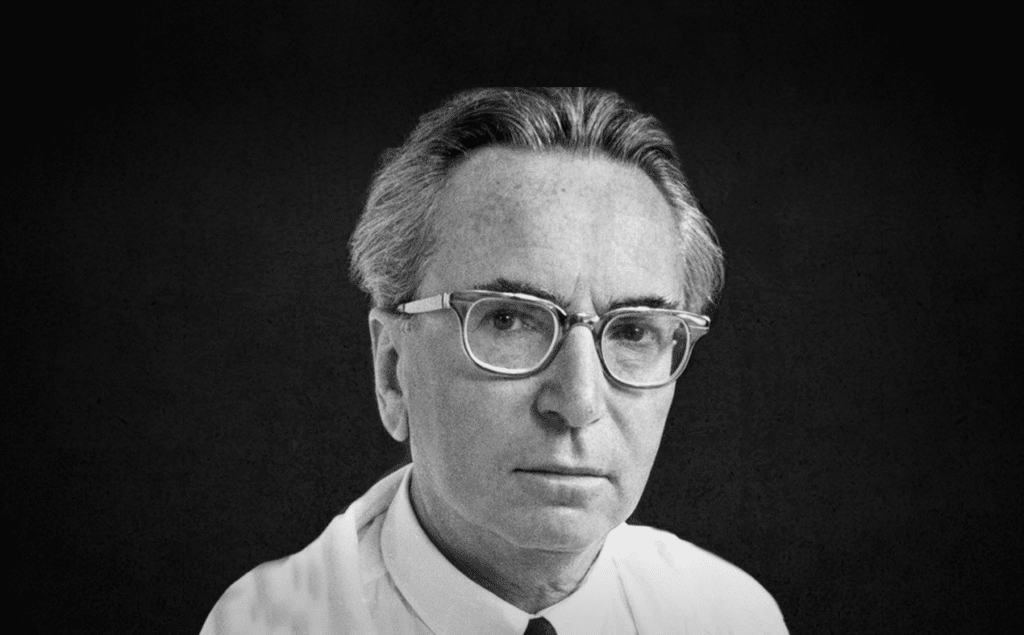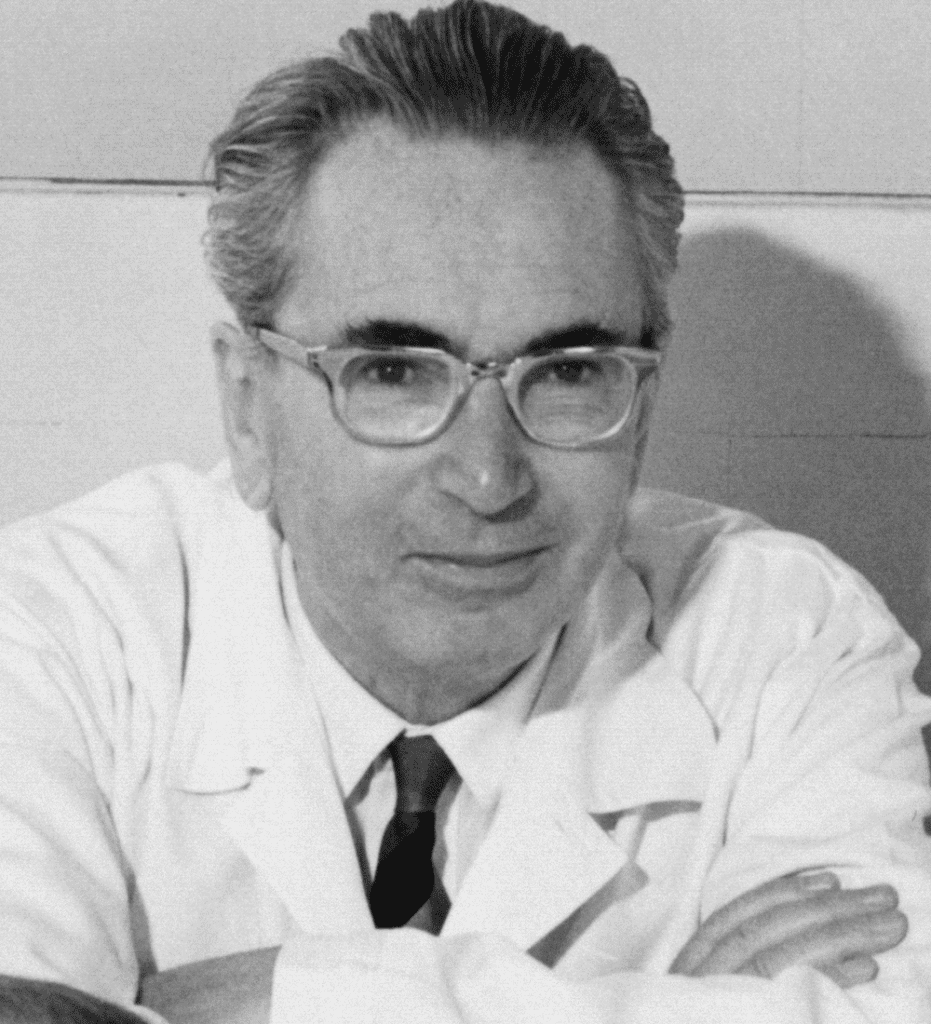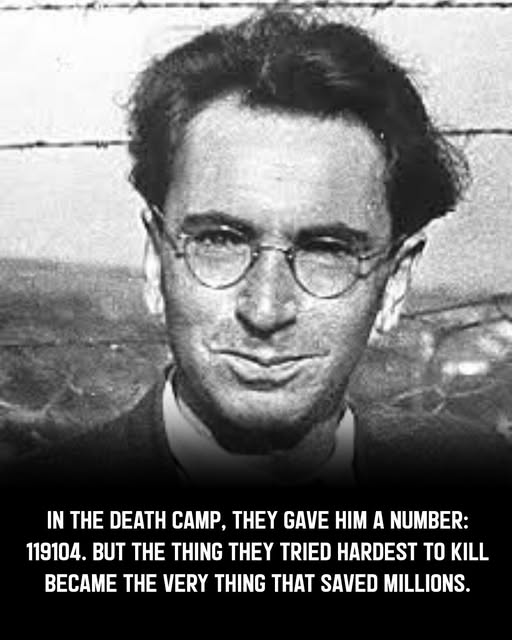In the midst of the darkest chapters of human history, when cruelty and suffering seemed beyond imagination, one man stood as a beacon of hope, defiance, and psychological resilience. His name was Viktor Frankl, and his journey from the depths of the Holocaust to becoming one of the most influential thinkers in the history of psychology proves that meaning is the ultimate force for survival.
Viktor Frankl’s story isn’t just one of survival—it’s a testament to the power of the human spirit to find meaning in even the most excruciating circumstances. His groundbreaking work, Logotherapy, became a lifeline for countless individuals, providing them not only with the strength to endure suffering but also with a framework for thriving despite it.

Before the Darkness: A Life of Promise and Purpose
Viktor Frankl was not just any man. Born in 1905 in Vienna, Austria, he was a promising psychiatrist with an extraordinary mind. He had already developed a growing reputation in his field, and his professional life was thriving. He had a beloved wife, Tilly, whose laughter filled their home and his heart, and he was on the verge of completing a manuscript that would lay the foundation for his lifelong work in psychology.
By 1942, at the age of 37, Frankl was living what many would consider a dream life. But as Nazi forces marched across Europe, his world began to unravel. Despite receiving an opportunity to escape to America, Viktor refused to leave Vienna. His elderly parents could not accompany him, and so, out of love and loyalty, he chose to stay behind, fully aware of the dangers ahead.
Within months, the Nazis came for him, his family, and his fellow Jews. Frankl was transported to the concentration camp of Theresienstadt, and then to Auschwitz, followed by Dachau. The brutalities he endured were unimaginable, but what the Nazis failed to realize was that Viktor Frankl was not just a survivor—he was about to become the voice of a revolution in psychology.
The Dehumanizing World of the Camps: A Man Reduced to a Number
When Viktor Frankl arrived at the concentration camps, his life as he knew it was taken from him. His manuscripts were stripped from him, ripped away as though his life’s work had never existed. His clothes were seized, his hair shaved, his name erased from history. In place of his identity, there was only a number—119104.
It was here, in the depths of human suffering, that Frankl made a chilling yet profound observation: the greatest danger to survival in the camp wasn’t the starvation, the disease, or the violence. It was the loss of meaning.

The Science of Survival: How Meaning Became the Lifeline
In the dark barracks of Auschwitz, Frankl began to observe the subtle but profound differences between those who survived and those who perished. It wasn’t just about physical strength; it wasn’t about who was the most fit or the strongest. The difference lay in one crucial factor: meaning.
Frankl noticed that the prisoners who had a “why”—a reason to keep going, a loved one to return to, a work to finish, a promise to keep—were far more likely to survive. Those who lost their reason to live, who gave up on the very idea of meaning, were the ones who succumbed to what Frankl termed “give-up-itis.” Their bodies collapsed within days.
In the face of immeasurable suffering, Frankl began an informal experiment, not in a laboratory, but in the barracks of the camp. He approached fellow prisoners who were on the brink of despair and asked them questions that would stir their souls:
- “Who is waiting for you?”
- “What work is left unfinished?”
- “What would you tell your son about surviving this?”
Frankl couldn’t provide food. He couldn’t offer the promise of freedom. But what he did offer—was the one thing that could never be taken from them: a reason to survive.
One prisoner clung to the memory of his daughter, and it was this memory that propelled him to survive the horrors of the camp. Another recalled a scientific problem he had been working on. His desire to solve that problem fueled his endurance. Frankl himself survived by mentally reconstructing his lost manuscript—page by page, paragraph by paragraph—in the dark of the barracks.

The Birth of Logotherapy: Therapy Through Meaning
In April 1945, after years of unspeakable suffering, Viktor Frankl was liberated. Weighing only 85 pounds, his body was a mere shell of the man he had once been. His wife, Tilly, was gone. His mother, his brother—all were lost to the horrors of the Holocaust.
In just nine days, Viktor Frankl recreated the manuscript he had spent years writing and had lost to the flames of the concentration camp. But this manuscript was different. This time, it contained proof. Proof that Frankl’s theory—that meaning is what sustains us through suffering—was not just a philosophical idea, but a survival strategy.
The Book That Changed the World
In 1946, Frankl’s book was published under the title Man’s Search for Meaning. Initially, it was met with resistance. Publishers deemed it “too morbid” and questioned who would want to read about the atrocities of concentration camps. But Frankl’s message was undeniable. Gradually, the book began to spread, gaining traction among therapists, patients, and anyone who faced suffering or hardship.
Today, Man’s Search for Meaning has been translated into over 50 languages and sold more than 16 million copies. It is now considered one of the most influential books in the world.
What makes the book so impactful isn’t just its historical account of Frankl’s suffering; it’s the universal truth it offers: we can survive almost anything if we find meaning in it.

The Enduring Power of Frankl’s Message
Viktor Frankl’s legacy extends far beyond the pages of his book. His teachings have influenced not only psychology but the broader fields of human resilience and personal development. His revolutionary concept of Logotherapy has helped millions find meaning in their own suffering—whether in therapy offices, hospitals, or prison cells.
Frankl’s words continue to resonate in countless lives, especially in times of crisis. His profound assertion that “when we are no longer able to change a situation, we are challenged to change ourselves” speaks to the deepest wellsprings of human endurance.
Viktor Frankl’s Legacy Lives On
Viktor Frankl’s life proves that meaning is the one thing that no one can take away from you. In the midst of unimaginable horror, Frankl discovered that our deepest freedom lies not in what happens to us, but in how we choose to respond to it. His teachings offer not only a psychological framework for healing but a moral compass for living a life filled with purpose.
As we face the inevitable suffering that life brings, we can take solace in the words of Viktor Frankl: “He who has a why to live can bear almost any how.” His legacy lives on in the hearts of those who, in their darkest moments, find the strength to ask themselves, “What is my why?”
Viktor Frankl did not just survive. He triumphed over death itself and taught us all that suffering, when faced with meaning, can become the source of our greatest strength.


